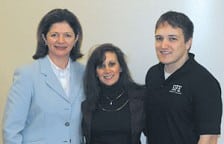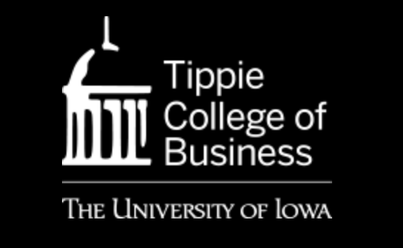SEED program encourages entrepreneurship

ISED Ventures hopes to recruit, train and assist about 90 aspiring entrepreneurs through the latest expansion of its microenterprise program.
The Southview Expanded Entrepreneur Development Program (SEED) aims to support individuals in Polk, Warren, Dallas, Clarke, Lucas, Madison and Marion counties who want to start, strengthen or expand a small business.
Funded in part through a five-year $75,000 per year PRIME (Program for Investment in Microentrepreneurs Act) grant through the U.S. Small Business Administration (SBA), the program is intended to provide training, technical assistance and business financing services to “disadvantaged microentrepreneurs.”
One goal of the grant, which was authored by Debra Carr, ISED’s director of economic development, and Marilyn Mueller, professor of management in Simpson College’s department of business administration and economics, is to help low-income entrepreneurs find necessary start-up capital and other resources.
ISED stands for Iowans for Social and Economic Development.
The program
Carr defines a microenterprise as a business with five or fewer employees that needs $50,000 or less to get started.
“Iowa is a very rural state,” Carr said, noting that some would-be business owners may not be aware of the resources available to help them at least study the possibility of starting a new venture.
And though the focus is on helping those who may be at a disadvantage, as defined by the SBA, Carr said the program is free and open to anyone who is interested in exploring entrepreneurship.
“No one is turned away from the small business training because they make too much or they make too little,” she said. “The hope in this particular project is to expand what ISED has historically done,” which is to provide these types of opportunities in underserved communities.
And though there is no clause in the grant that would stop those who participate in the free program from taking what they learn and applying it outside Iowa, Carr said from her experience it seems as if most stick around.
“In the past, most of the people seem pretty vested in trying to do something here, not only to improve their own conditions, but improve the lives of their families for the long term,” she said.
The relationship
Creating and developing relationships in the community is a pivotal aspect of the SEED project, and its leaders are working to build a network of students, professionals and retirees in an effort to promote overall economic development in the targeted region.
“We are really using a broad set of stakeholders to build and strengthen the economics of the area,” Carr said, noting that the program has been received enthusiastically by Warren County, the city of Indianola and Simpson College.
The multigenerational approach is most apparent through ISED’s partnership with the college.
Mueller, for example, was granted a sabbatical from Simpson last fall to help kick off the project. “Ideally, we hope that all of our entrepreneurs will be working with a college student as well as a retired person,” she said. “We will be able to draw on their wisdom and experience to help our entrepreneurs.”
“We are excited about our partnership with ISED and the opportunity that it holds for Simpson students to be actively involved in applying what they have learned in the classroom to support the start of new businesses,” said John Byrd, Simpson’s president.
The program’s organizers approached The Village, a WesleyLife of Iowa retirement community in Indianola, and received “a very enthusiastic endorsement of the concept,” Mueller said.
They also plan to reach out to the members of the Rotary Club of Indianola for support.
Additionally, SEED has tapped a number of Greater Des Moines business people to share their expertise during the eight-week course, which begins March 11.
Attorney Brett Trout and conversation coach Mike Sansone are among the speakers ISED has lined up, as well as Mary Montgomery and Lori Young of the Iowa Department of Economic Development’s Targeted Small Business program, Myles Kappelman of the Indianola Development Association, and others.
The classes will meet for three hours on Thursday evenings in Simpson’s McNeil Hall. The syllabus includes a self-assessment and feasibility study and covers topics such as business management, marketing strategies, financial planning, legal issues and bookkeeping.
“We partner with these professionals who have the legal and marketing and financial expertise,” which is a huge benefit to students, Carr said. “Our curriculum guides them through a process that helps them take that information and learn how to apply it so that they can use it to make a good decision about whether this is a good idea to move forward with or not.”
Renda Lutz is the SEED’s program manager.
“The goal is to help them assess if they are ready to have a business and then helping them with that business plan,” said Lutz, who last month resigned from The Des Moines Register to take on the role.
Lutz, who is charged with lining up speakers, facilitating class discussions and overseeing several other aspects of the program, will work out of office space donated by Warren County Economic Development Corp. in its suite at 515 N. Jefferson Way in Indianola.
Carr said Warren County, the city of Indianola and United Way of Central Iowa have been supportive of the initiative.
“The idea that they are going to be able to offer advice and training to start-up companies, in kind of an incubation way, is very exciting for the city of Indianola,” said Mayor Ken Bresnan.
According to the SEED’s executive summary, “A key element of this strategy is the multi-prong approach that combines both urban and rural entrepreneurs by linking them to resources that promote the formalization of microenterprises.”
The intern
Chance Porter will graduate from Simpson in May with a degree in business management.
The Osceola native, whose father is a self-employed carpet installer, whose mother started her own cleaning business and whose grandparents operate a concession stand, said his entire family is somewhat “entrepreneurial-minded.”
And though Porter is still several weeks away from earning a college diploma, the 21-year-old is already focused on the practical application of his education, which includes the completion of an ISED microenterprise program in the summer of 2008.
Not only does the college senior own and operate Porter’s Prints, a start-up business he founded in his hometown two years ago, he has already made a second major investment.
“This business allowed me to purchase a home last summer,” Porter said, noting that it also serves as his T-shirt design and print shop. He emphasized that the revenues generated by the business have helped make that dream a reality.
In addition to the designing and printing of custom T-shirts, he also handles the marketing, accounting and all other facets of the company – skills he picked up while going through the ISED training.
“I came in as a biology major, so I wasn’t really savvy in all the business lingo,” he said. “This helped a lot.”
It has also helped him to make more connections.
“The networking was great,” Porter said. “When you’re actually interacting with people and applying it, it just helps so much more. It gave me a lot of resources to look at, a lot of ways to build my business.”
And now that things are falling into place with the opening of his business, the purchase of his home and his upcoming graduation, he is beginning to realize the full value of the program.
“I was amazed how this one little class kind of came full circle,” said Porter, who is serving as SEED’s first intern and will help create an intern handbook, which will outline policies and procedures for future participants.
Mueller is also envisioning the full-circle effect of SEED.
“The long-term vision is that when the businesses are launched they will also have Simpson interns,” said Mueller, who in addition to her involvement with the weekly sessions will work with participants outside class.
SEED anticipates recruiting a minimum of 144 individuals over the course of the five-year project and hopes to garner enough financial support and in-kind donations to continue the program indefinitely.
To maintain its eligibility for the grant, Carr said, ISED must match 50 percent of the annual $75,000.
“People can join us at any capacity level that they feel will work for them,” Carr said.











